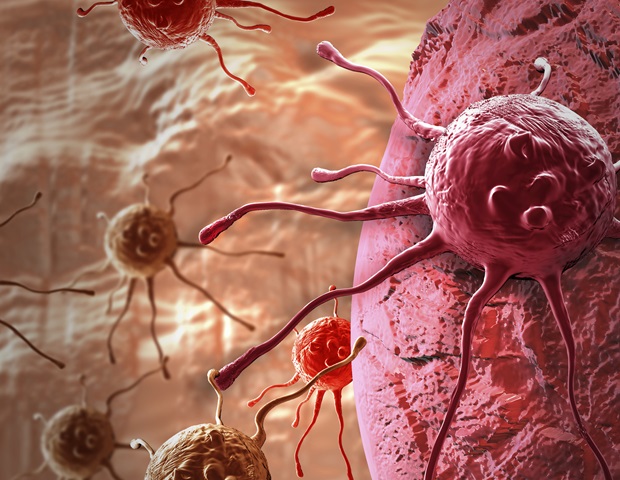
Understanding the mechanisms that mediate widespread DNA damage in the cancer genome is of great interest to cancer physicians and scientists because it may lead to improved treatments and diagnosis. In this study, a multi-institutional team led by researchers at Baylor College of Medicine has brought attention to genomic structural variation as a previously unappreciated mechanism involved in altering DNA methylation, a form of gene control, in human cancers.
The researchers brought together data from whole genome sequencing, gene expression and DNA methylation from more than 1,400 human cancers. They report today in the journal Genome Biology that structural variations consistently altered DNA methylation affecting hundreds of genes, overall reducing the global level of DNA methylation across cancers.
Genomic structural variations occur when a piece of DNA that is in one part of the genome is moved to another part of the genome, which shows up as a break point in the sequence. Therefore, when sequencing a DNA segment, one may find two pieces of DNA from other regions fused together, which disrupts the genetic instructions encoded in DNA.
Corresponding author Dr. Chad Creighton, associate professor of medicine and co-director of Cancer Bioinformatics of the Dan L Duncan Comprehensive Cancer Center at Baylor College of Medicine
In this study, Creighton and his colleagues looked at the effect genomic structural variation has on both DNA methylation and gene expression in human cancers. They analyzed data from two different large science consortiums, the Cancer Genome Atlas and the Pancancer Analysis of Whole Genomes.
These data include molecular alterations across the entire genome; that is on both protein-coding genes and on their regulatory regions, for thousands of cancers. The datasets include the same information from non-cancerous tissues for comparison.
Working with so many patient samples gave more statistical power to the researchers' analyses and enabled them to find new genes that might be involved in cancer. "This time we had more cases and deeper sequencing than what was previously available," Creighton said.
In the first part of the study, the researchers discovered that genomic structural variations played a major role in altering DNA methylation in a sizable fraction of cancers. DNA methylation is one way to control gene expression; it's part of the epigenome. The epigenome refers to all the chemical modifications to DNA and associated proteins that regulate the expression of genes within the genome.
"Methylation changes were happening in a non-random way across multiple cancer types," Creighton said. "Some of these genes were known before to be linked to cancer, but we also identified genes that were not previously associated with this condition. Some genes may be directly involved in the disease, others might be 'passengers.'"
Overall, structural variation was associated with a global decrease in DNA methylation.
"We know that in cancer the epigenome is altered. In the current study, we found that structural variation is one important mechanism that is altering the epigenome. This was not appreciated before," Creighton said. "We think this may be one of the first surveys of cancer genomics that shows where these changes in DNA methylation happen and in what types of cancer."
In the second part of the study, the researchers found that there is variability across cancers in terms of the amount of structural variation present within a given cancer. Some cancers may not be heavily altered while others have widespread structural variation. These findings enabled the researchers to stratify cancers in terms of how much structural variation they have.
This and other analyses told the researchers a lot about what is going on in these cancers. For instance, Creighton and his colleagues found that cancers that have a high level of DNA alterations also tended to have a decrease in immune cell infiltration. This finding may have implications for cancer immunotherapy.
"We think that our study is unique in the sense that we found that structural variation plays a major role not only in introducing mistakes in DNA sequences but also affecting DNA at the epigenetic level," Creighton said. "We propose that the effect of structural variation on DNA methylation is something to consider when looking for the genetic causes of a cancer."
Baylor College of Medicine
Journal reference:
Zhang, Y. et al. (2019) Global impact of somatic structural variation on the DNA methylome of human cancers. Genome Biology. doi.org/10.1186/s13059-019-1818-9






No comments
Post a Comment